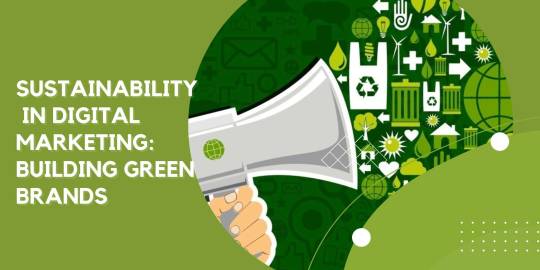#web development company
Text
8 notes
·
View notes
Text
What does a web development company do?
A web development company specializes in creating and maintaining websites for businesses and individuals. Their primary focus is on designing, building, and optimizing websites to meet the specific needs of their clients. This involves a range of tasks, including website layout design, content creation, coding, and testing to ensure functionality across different devices and browsers.
Web development companies also offer services such as e-commerce development, where they build online stores for businesses to sell products or services. They may integrate payment gateways, shopping carts, and inventory management systems to create seamless shopping experiences for customers.
Additionally, web development firms provide ongoing support and maintenance to ensure that websites remain secure, up-to-date, and optimized for performance. With their expertise in coding languages, design principles, and digital trends, web development agencies play a crucial role in helping businesses establish a strong online presence and achieve their digital objectives.
Truefirms have a vast list of web development companies with trusted client reviews and ratings. Explore Now
#web development#web development course#web development solutions#web development company#web development services#web development companies#web developers#website development
5 notes
·
View notes
Text

Are you looking for a web design agency? We craft thoughtfully designed digital experiences and construct website that drive conversions.
#website development#website services#web design agency#web designer#web developer#web development company#web developing company
3 notes
·
View notes
Text

The company that fired you
#The company that fired you#limbus company#lethal company#seo company#digital marketing company#web development company#company#companies#ausgov#politas#auspol#tasgov#taspol#australia#fuck neoliberals#neoliberal capitalism#anthony albanese#albanese government#toontown corporate clash#lobotomy corporation#corporate greed#corporategifting#corporateevents#fuck corporations#corporations#corporation blog#umbrella corporation#thievery corporation#corporation#karma
5 notes
·
View notes
Text
Sustainability In Digital Marketing : Building Green Brands

Welcome to the future of marketing, where sustainability and innovation go hand in hand. In an era when consumers are increasingly mindful of their environmental impact, businesses have a unique opportunity to not only grow their brands but also make a positive difference in the world. Today, we dive into the exciting realm of sustainable digital marketing and explore how building green brands can be both lucrative and socially responsible. Buckle up as we unravel the secrets behind creating eco-friendly campaigns that captivate audiences while leaving a lasting legacy for our planet. It’s time to revolutionize your approach to marketing – it’s time to build green brands!
Introduction To Sustainability In Digital Marketing And Its Importance
In the digital age, where consumers are increasingly concerned about the environmental impact of their actions, sustainability has become a critical consideration for businesses across industries. This includes the realm of digital marketing, where companies are leveraging innovative strategies to promote their products and services while minimizing their ecological footprint. In this article, we’ll explore the concept of sustainability in digital marketing, its importance, and why businesses need to prioritize it in today’s evolving landscape.
What Is Sustainability In Digital Marketing?
Sustainability in digital marketing refers to the integration of environmentally responsible practices into online marketing strategies and operations. This encompasses various aspects, including reducing energy consumption, minimizing waste, and promoting eco-friendly products and services. Sustainable digital marketing involves aligning marketing efforts with broader sustainability goals, such as reducing carbon emissions, conserving resources, and promoting social responsibility.
The Importance Of Sustainability In Digital Marketing
Environmental Impact Reduction: Digital marketing activities, such as website hosting, email marketing, and social media advertising, consume significant energy and resources. By adopting sustainable practices, businesses can minimize their environmental impact and contribute to mitigating climate change. This includes using renewable energy sources, optimizing server efficiency, and reducing electronic waste.
Consumer Preference and Trust: Today’s consumers are increasingly drawn to brands that demonstrate a commitment to sustainability. By incorporating environmental messaging and eco-friendly initiatives into their digital marketing campaigns, businesses can build trust and loyalty with environmentally conscious consumers. Studies show that sustainability is a key factor influencing purchasing decisions, with many consumers willing to pay a premium for sustainable products and services.
Brand Differentiation and Competitive Advantage: In a crowded marketplace, sustainability can serve as a powerful differentiator for brands. By highlighting their sustainability efforts through digital marketing channels, businesses can stand out from competitors and attract environmentally conscious consumers. A strong focus on sustainability can help companies carve out a unique position in the market and gain a competitive advantage.
Cost Savings and Efficiency: Adopting sustainable practices in digital marketing can also lead to cost savings and increased efficiency. By optimizing energy usage, streamlining operations, and reducing waste, businesses can lower their overhead costs and improve their bottom line. Sustainable digital marketing strategies, such as email marketing and content optimization, often yield higher returns on investment while minimizing environmental impact.
Long-Term Viability and Reputation Management: Sustainable digital marketing is not just about short-term gains; it’s about building a reputation for environmental stewardship and long-term viability. By demonstrating a commitment to sustainability, businesses can enhance their brand image, attract top talent, and strengthen relationships with stakeholders. A positive reputation for sustainability can also mitigate reputational risks and enhance brand resilience in the face of environmental challenges.

Understanding The Concept Of Green Brands And Their Impact On The Environment
In an era marked by growing environmental concerns and increased consumer awareness, the concept of green brands has gained significant traction. But what exactly are green brands, and how do they impact the environment? In this article, we’ll explore the essence of green brands, their significance, and the crucial role they play in fostering sustainability.
What Are Green Brands?
Green brands, also known as eco-friendly or sustainable brands, are companies that prioritize environmental sustainability in their products, services, and overall business operations. These brands go beyond mere profit-making goals; they actively strive to minimize their ecological footprint and promote responsible consumption practices. From sourcing environmentally friendly materials to implementing energy-efficient production processes, green brands are committed to making a positive impact on the planet.
The Impact Of Green Brands On The Environment
Reduction of Carbon Footprint: Green brands prioritize energy efficiency and the use of renewable resources, thereby reducing their carbon emissions. By embracing sustainable practices such as utilizing renewable energy sources and optimizing transportation logistics, these brands contribute to mitigating climate change and reducing overall environmental degradation.
Conservation of Natural Resources: Green brands are mindful of the finite nature of natural resources and work towards their conservation. They adopt strategies such as responsible sourcing of raw materials, minimizing water usage, and implementing recycling and waste reduction measures. By conserving natural resources, green brands help preserve biodiversity and ecosystems for future generations.
Promotion of Circular Economy: Green brands embrace the principles of the circular economy, which emphasizes minimizing waste and maximizing resource efficiency. Through initiatives such as product refurbishment, remanufacturing, and recycling programs, these brands extend the lifespan of products and materials, reducing the need for virgin resources and minimizing landfill waste.
Influence on Consumer Behavior: Green brands play a crucial role in shaping consumer behavior towards more sustainable choices. By transparently communicating their environmental commitments and offering eco-friendly alternatives, these brands empower consumers to make informed decisions that align with their values. As consumers increasingly prioritize sustainability, the demand for green products and services continues to grow, driving positive change across industries.
Key Strategies Adopted By Green Brands
Sustainable Sourcing: Green brands prioritize sourcing materials from ethical and environmentally responsible suppliers. This includes using renewable or recycled materials and ensuring fair labor practices throughout the supply chain.
Energy Efficiency: Green brands invest in energy-efficient technologies and practices to minimize their carbon footprint. This may involve adopting renewable energy sources, optimizing manufacturing processes, and implementing energy-saving measures in facilities and operations.
Waste Reduction and Recycling: Green brands implement strategies to minimize waste generation and maximize recycling. This includes designing products for recyclability, implementing closed-loop systems, and engaging in partnerships for waste diversion and recycling initiatives.
Transparency and Accountability: Green brands are transparent about their environmental practices and performance, providing consumers with access to information about their sustainability efforts. They may also seek third-party certifications and engage in sustainability reporting to demonstrate accountability.
Case Studies Of Successful Green Brands And Their Digital Marketing Efforts
In the ever-evolving landscape of sustainability, green brands have emerged as pioneers, demonstrating how businesses can thrive while prioritizing environmental responsibility. Leveraging digital marketing strategies, these brands have effectively communicated their commitment to sustainability, resonating with eco-conscious consumers and driving positive change. Let’s explore some inspiring case studies of successful green brands and their innovative digital marketing efforts.
1. Patagonia: Environmental Activism Through Storytelling
Patagonia, the renowned outdoor apparel company, is widely recognized for its unwavering commitment to environmental activism. Through its digital marketing efforts, Patagonia has effectively communicated its brand ethos and environmental initiatives, resonating with consumers on a deeper level. The company’s “Worn Wear” campaign, which encourages customers to repair and reuse their clothing, has been a standout example of sustainability in action. Through compelling storytelling and user-generated content shared on social media platforms, Patagonia has fostered a community of like-minded individuals passionate about protecting the planet.
2. Tesla: Revolutionizing Transportation With Innovative Technology
Tesla, the electric vehicle (EV) pioneer, has revolutionized the automotive industry with its commitment to sustainability and innovation. Through its digital marketing channels, Tesla has effectively communicated the environmental benefits of electric vehicles, highlighting their role in reducing carbon emissions and combating climate change. The company’s sleek and informative website, coupled with engaging social media content and interactive digital experiences, has helped demystify EV technology and cultivate a loyal customer base. Tesla’s visionary approach to digital marketing has not only propelled its brand to the forefront of the EV market but also inspired widespread adoption of sustainable transportation solutions.
3. Ecover: Empowering Consumers With Eco-Friendly Cleaning Products
Ecover, a pioneer in sustainable cleaning products, has carved out a niche in the market by offering environmentally friendly alternatives to conventional household cleaners. Through its digital marketing efforts, Ecover has effectively communicated the benefits of its products, emphasizing their plant-based ingredients and biodegradable formulations. The company’s engaging social media campaigns, educational blog content, and user-generated reviews have helped build brand trust and loyalty among eco-conscious consumers. By empowering consumers to make greener choices in their everyday lives, Ecover has positioned itself as a leader in the sustainable cleaning products industry.
4. Allbirds: Redefining Footwear With Sustainable Materials
Allbirds, the eco-friendly footwear company, has gained widespread acclaim for its commitment to sustainability and innovation. Through its digital marketing initiatives, Allbirds has effectively communicated the environmental benefits of its products, highlighting the use of renewable materials such as merino wool and eucalyptus fibers. The company’s minimalist website design, engaging social media content, and influencer partnerships have helped elevate its brand presence and drive sales. Allbirds’ emphasis on transparency and authenticity has resonated with consumers, positioning the brand as a frontrunner in the sustainable fashion movement.
The Role Of Consumers In Promoting Sustainability Through Their Purchasing Power
In today’s world, consumers have become powerful agents of change, wielding significant influence over the corporate landscape through their purchasing decisions. With growing environmental concerns and a heightened awareness of sustainability issues, consumers are increasingly leveraging their buying power to support brands that align with their values. In this article, we’ll explore the pivotal role of consumers in promoting sustainability and driving positive change through their purchasing choices.
1. Demand For Sustainable Products
As consumers become more environmentally conscious, there is a rising demand for products and services that prioritize sustainability. From eco-friendly household cleaners to ethically sourced clothing, consumers are actively seeking out brands that demonstrate a commitment to environmental responsibility. By choosing to support these sustainable brands, consumers send a clear message to the market that sustainability is not just a preference but a priority.
2. Influence On Corporate Behavior
Consumer preferences have a direct impact on corporate behavior, prompting companies to adapt their practices to meet the demands of the market. As sustainability becomes a key differentiator in the competitive marketplace, companies are increasingly incorporating eco-friendly practices into their business models. Whether it’s reducing carbon emissions, implementing sustainable sourcing practices, or investing in renewable energy, corporations are responding to consumer demand for more sustainable products and services.
3. Promotion Of Transparency And Accountability
Consumers play a crucial role in promoting transparency and accountability within the corporate sector. With access to information at their fingertips, consumers are increasingly scrutinizing companies’ environmental practices and holding them accountable for their actions. Social media platforms and online review sites provide consumers with a platform to voice their concerns and share their experiences, putting pressure on companies to be more transparent about their sustainability efforts.
4. Support For Ethical Supply Chains
By choosing to support brands with ethical and transparent supply chains, consumers can help promote fair labor practices and support communities around the world. Whether it’s fair trade coffee, organic cotton clothing, or conflict-free diamonds, consumers have the power to drive positive change throughout the supply chain by voting with their wallets. Through their purchasing decisions, consumers can support companies that prioritize worker rights, environmental stewardship, and social responsibility.
5. Advocacy And Collective Action
Consumer activism plays a crucial role in driving systemic change and advocating for policies that promote sustainability. Through collective action, consumers can amplify their impact and hold governments and corporations accountable for their environmental policies and practices. Whether it’s signing petitions, participating in boycotts, or supporting grassroots movements, consumers have the power to effect change at both the individual and collective levels.
Challenges And Barriers Faced By Companies In Implementing Sustainable Digital Marketing Practices
In today’s increasingly eco-conscious world, the adoption of sustainable practices has become a priority for businesses across industries. However, despite the growing recognition of the importance of sustainability, companies often encounter various challenges and barriers when attempting to integrate sustainability into their digital marketing strategies. In this article, we’ll explore some of the key challenges faced by companies in implementing sustainable digital marketing practices and strategies to overcome them.
1. Cost Considerations
One of the primary challenges companies face in implementing sustainable digital marketing practices is the perceived higher cost associated with sustainable initiatives. Sustainable materials, renewable energy sources, and eco-friendly production processes often come with a higher price tag, making it difficult for companies, especially small and medium-sized enterprises (SMEs), to justify the investment. Additionally, the transition to sustainable practices may require significant upfront investments in infrastructure and technology, further adding to the financial burden.
Solution: Companies can overcome cost barriers by adopting a long-term perspective and recognizing the potential cost savings associated with sustainability initiatives. Investing in energy-efficient technologies, optimizing resource utilization, and minimizing waste can lead to significant cost reductions over time. Moreover, companies can explore alternative financing options, such as green loans and grants, to support their sustainability efforts.
2. Lack Of Consumer Awareness
Another challenge companies face is the lack of consumer awareness and understanding of sustainability issues. While there is growing interest in eco-friendly products and services, many consumers may not be fully aware of the environmental impact of their purchasing decisions or the sustainability initiatives implemented by companies. As a result, companies may struggle to effectively communicate their sustainability efforts and differentiate themselves in the market.
Solution: To address this challenge, companies can focus on educating consumers about sustainability issues and the environmental benefits of their products and services. Utilizing digital marketing channels such as social media, blogs, and email newsletters, companies can share compelling stories, informative content, and transparent reporting on their sustainability initiatives. By engaging consumers and raising awareness, companies can build trust and loyalty among environmentally conscious consumers.
3. Complexity Of Supply Chains
The complexity of global supply chains presents another significant challenge for companies seeking to implement sustainable digital marketing practices. Many companies rely on extensive networks of suppliers and partners, making it challenging to trace the origin of raw materials, ensure ethical labor practices, and monitor environmental impact throughout the supply chain. Moreover, implementing sustainability initiatives across diverse supply chains requires collaboration and coordination among multiple stakeholders, further complicating the process.
Solution: Companies can address supply chain challenges by adopting a holistic approach to sustainability and collaborating closely with suppliers and partners. Implementing robust supply chain management systems, conducting audits and assessments, and establishing clear sustainability guidelines can help ensure transparency and accountability throughout the supply chain. Additionally, companies can prioritize partnerships with suppliers that share their commitment to sustainability and work together to drive positive change.
4. Regulatory And Policy Constraints
Regulatory and policy constraints pose additional challenges for companies seeking to implement sustainable digital marketing practices. While there is growing recognition of the importance of sustainability among policymakers, regulatory frameworks and standards vary widely across regions and industries, creating compliance challenges for companies operating in multiple markets. Moreover, evolving regulations and emerging sustainability trends require companies to remain agile and adaptable in their approach.
Solution: Companies can navigate regulatory and policy constraints by staying informed about relevant regulations and standards and proactively addressing compliance requirements. Engaging with industry associations, participating in sustainability initiatives, and advocating for supportive policies can also help shape regulatory environments conducive to sustainable business practices. By staying ahead of regulatory developments and integrating sustainability into their business strategies, companies can mitigate compliance risks and seize opportunities for innovation.
Tips And Strategies For Companies To Build A Strong Green Brand Through Digital Marketing
In an era where sustainability is at the forefront of consumer consciousness, building a strong green brand has become essential for businesses aiming to thrive in the modern marketplace. Leveraging digital marketing strategies effectively can not only showcase a company’s commitment to environmental responsibility but also resonate with eco-conscious consumers. In this article, we’ll explore actionable tips and strategies for companies to build a robust green brand through digital marketing.
1. Authenticity Is Key
The foundation of a strong green brand lies in authenticity. It’s crucial for companies to genuinely embrace sustainability as a core value rather than merely jumping on the green bandwagon for marketing purposes. Authenticity builds trust and credibility with consumers, fostering long-term relationships and loyalty. Ensure that sustainability initiatives are integrated into the company’s mission, values, and operations, and communicate them transparently through digital marketing channels.
2. Tell Compelling Stories
Storytelling is a powerful tool for engaging consumers and communicating the brand’s sustainability journey. Share stories that highlight the company’s environmental initiatives, successes, challenges, and impact. Whether it’s showcasing sustainable sourcing practices, eco-friendly product innovations, or community initiatives, storytelling humanizes the brand and creates emotional connections with consumers. Use digital platforms such as social media, blogs, and videos to share these stories in an authentic and compelling manner.
3. Educate And Empower Consumers
Empower consumers to make informed choices by educating them about sustainability and the environmental impact of their purchasing decisions. Use digital marketing channels to provide valuable information, tips, and resources on topics such as sustainable living, eco-friendly products, and environmental conservation. Engage with consumers through interactive content, webinars, and Q&A sessions to address their questions and concerns. By positioning the brand as a trusted source of information, companies can empower consumers to make greener choices.
4. Transparency And Accountability
Transparency is essential for building trust and credibility with consumers. Be transparent about the company’s sustainability efforts, goals, and progress. Share information about supply chain practices, carbon footprint, energy usage, and waste management initiatives. Utilize digital platforms to provide real-time updates, sustainability reports, and certifications that demonstrate the company’s commitment to transparency and accountability. Encourage feedback from consumers and stakeholders, and be responsive to their concerns.
5. Engage With Sustainability Influencers
Collaborate with influencers and advocates in the sustainability space to amplify the brand’s message and reach a wider audience of eco-conscious consumers. Identify influencers who align with the brand’s values and have a genuine passion for sustainability. Partner with them to create content, host events, or launch sustainability-focused campaigns. Leverage their credibility and influence to increase brand visibility, credibility, and engagement within the sustainability community.
6. Optimize Digital Channels For Sustainability
Optimize digital marketing channels to align with sustainability principles and reduce environmental impact. Implement energy-efficient technologies, eco-friendly web hosting, and sustainable design practices for websites and mobile apps. Minimize paper usage by transitioning to digital marketing materials, e-brochures, and e-newsletters. Encourage digital transactions and provide digital alternatives to physical products whenever possible. By embracing sustainable practices in digital marketing operations, companies can further reinforce their commitment to environmental responsibility.
Conclusion:
In conclusion, sustainability in digital marketing presents a tremendous opportunity for brands to build meaningful connections with environmentally conscious consumers and differentiate themselves in a crowded marketplace. By embracing authenticity, educating and empowering consumers, harnessing the power of social media, embracing sustainable packaging, and collaborating with like-minded partners, brands can position themselves as leaders in the green movement and make a lasting impact on the planet. Ultimately, by integrating sustainability into their digital marketing strategies, brands can not only drive business growth but also contribute to a more sustainable and equitable future for all.
#website landing page design#magento development#asp.net web and application development#best web development company in united states#logo design company#web development company#digital marketing company in usa#web design#web development
2 notes
·
View notes
Text
Flutter App Development Company
#mobile app development#web development company#web design services#web developing company#webdevelopment#orlando web designer#orlando web design#app development
2 notes
·
View notes
Text

Efficient System Administration Services for Streamlined Operations || Rasonix
Unlock Your Digital Potential with Rasonix. Being one of the best Web Development Company in Bangalore, from inception to execution to sustainment, we provide comprehensive support for your digital journey. We pride ourselves on delivering high-quality solutions that meet our clients' needs and contribute to their success. Our team of skilled professionals is dedicated to providing exceptional service and exceeding client expectations.
At Rasonix, we follow a well-defined and efficient application development process to deliver high-quality and innovative solutions. We ensure that our clients receive top-notch solutions that align with their requirements, exceed their expectations, and drive their business forward. Call us today to get best website designing and application development services. Rasonix is a leading website development company in Bangalore.
#software development company#software development firm#responsive web design#rasonix#web design#web development company#website designer near me#enterprise application development
4 notes
·
View notes
Text
10 Web Developer Secrets You Need to Know for Success in 2024

In the fast-paced world of web development, staying ahead of the curve is essential for success. As we venture into 2024, it's crucial to uncover the latest secrets and strategies that can propel your web development endeavors to new heights. Let's delve into ten invaluable insights that every web developer should know for a prosperous year ahead.
Embrace Progressive Web Apps (PWAs)
In 2024, the prominence of Progressive Web Apps (PWAs) continues to soar. These innovative web applications offer users an immersive, app-like experience directly from their browsers. By embracing PWAs, developers can enhance user engagement, improve performance, and seamlessly integrate features like push notifications and offline functionality.
Prioritize Mobile-First Design
With mobile devices dominating internet usage, prioritizing mobile-first design is non-negotiable. Crafting websites with mobile users in mind ensures optimal responsiveness and usability across various devices and screen sizes. Embrace responsive design principles to deliver a seamless browsing experience that caters to the needs of your audience.
Harness the Power of AI and Machine Learning
AI and machine learning technologies are revolutionizing the field of web development. From personalized content recommendations to intelligent chatbots, incorporating AI-driven solutions can elevate user experiences and streamline processes. Explore AI-powered tools and frameworks to unlock new possibilities and stay ahead of the competition.
Optimize for Core Web Vitals
In 2021, Google introduced Core Web Vitals as essential metrics for evaluating user experience. To rank higher in search results and provide users with a smoother browsing experience, prioritize optimizing for Core Web Vitals. Focus on metrics like loading speed, interactivity, and visual stability to ensure your website meets Google's standards and delights visitors.
Implement Voice Search Optimization
The prevalence of voice-enabled devices continues to grow, shaping the way users interact with the web. To capitalize on this trend, implement voice search optimization strategies to make your website more discoverable through voice queries. Consider natural language patterns and long-tail keywords to optimize content for voice search queries effectively.
Enhance Security with HTTPS
Security remains a top priority for web developers, especially in an era marked by increasing cyber threats. Transitioning your website to HTTPS not only encrypts data transmitted between the user's browser and your server but also instills trust and credibility among visitors. Prioritize security protocols to safeguard sensitive information and protect your users' privacy.
Leverage Content Delivery Networks (CDNs)
Content Delivery Networks (CDNs) play a pivotal role in optimizing website performance and reliability. By distributing content across multiple servers worldwide, CDNs reduce latency and ensure faster loading times for users across the globe. Integrate CDNs into your web development workflow to deliver content swiftly and efficiently, regardless of geographical location.
Stay Abreast of Accessibility Standards
Accessibility is an integral aspect of web development, ensuring that websites are inclusive and accessible to all users, regardless of disabilities or impairments. Stay abreast of accessibility standards such as the Web Content Accessibility Guidelines (WCAG) and implement best practices to make your website more usable and navigable for everyone.
Embrace Serverless Architecture
Serverless architecture offers a streamlined approach to web development, eliminating the need to manage servers and infrastructure manually. By leveraging cloud-based services and functions, developers can focus on writing code and delivering value without worrying about scalability or maintenance. Embrace serverless architecture to enhance agility, reduce costs, and accelerate development cycles.
Cultivate Continuous Learning and Adaptation
In the dynamic landscape of web development, continuous learning and adaptation are paramount. Stay curious, explore emerging technologies, and embrace new methodologies to evolve with the industry's ever-changing demands. Cultivate a mindset of lifelong learning, experiment with new tools and techniques, and adapt your skills to thrive in the digital ecosystem.
As we navigate the complexities of web development in 2024, embracing these secrets and strategies can position you for success in an ever-evolving landscape. By staying ahead of trends, prioritizing user experience, and leveraging innovative technologies, you can unlock new opportunities and achieve remarkable feats in the realm of web development.
#web development company#app development#web development services#web development#mobile app development
2 notes
·
View notes
Text
Boost Your Business with the Top Advertising Company in Noida: Infotrench Technologies

In today’s digital age, establishing a strong online presence is crucial for the success of any business. Whether you’re a small startup or a large corporation, leveraging the power of digital marketing can significantly enhance your brand visibility, attract more customers, and ultimately drive revenue growth. If you’re seeking to elevate your business in Noida, look no further than Infotrench Technologies – the leading advertising company in Noida.
Infotrench Technologies stands out as a prominent player in the digital marketing landscape, offering a comprehensive suite of services tailored to meet the diverse needs of businesses across various industries. Specialising in search engine optimization (SEO), social media marketing (SMM), pay-per-click (PPC) advertising, and website development, Infotrench is your one-stop solution for all things digital marketing.
As a digital marketing company in Noida, Infotrench understands the unique challenges and opportunities present in the local market. With a deep understanding of the region’s demographics, consumer behaviour, and industry trends, they craft customised strategies that resonate with your target audience and drive tangible results.
One of the key strengths of Infotrench Technologies lies in its holistic approach to digital marketing. Unlike traditional advertising agencies that focus solely on one aspect of marketing, Infotrench takes a multidimensional approach, integrating various channels and tactics to deliver maximum impact. Whether it’s optimising your website for search engines, running targeted social media campaigns, or creating compelling content, Infotrench employs a synergistic blend of strategies to amplify your brand’s visibility and engagement.
In addition to being the top advertising company in Noida, Infotrench also prides itself on being a customer-centric organisation. They understand that every business is unique, with its own set of goals, challenges, and aspirations. That’s why they take the time to listen to your needs, understand your objectives, and tailor their solutions accordingly. Whether you’re looking to increase website traffic, generate leads, or boost sales, Infotrench works closely with you to develop a customised strategy that aligns with your business goals and objectives.
Furthermore, Infotrench Technologies is not just a service provider; they are your trusted partner in growth. With a team of experienced professionals who are passionate about digital marketing, Infotrench goes above and beyond to ensure your success. From the initial consultation to ongoing campaign management and performance tracking, they are with you every step of the way, providing expert guidance, insights, and support to help you achieve your business objectives.
In addition to being the top advertising company in Noida, Infotrench Technologies is also renowned for its excellence in search engine optimization (SEO). With a proven track record of helping businesses rank higher on search engine results pages (SERPs), Infotrench employs cutting-edge SEO techniques and best practices to improve your website’s visibility, drive organic traffic, and increase conversions. Whether you’re targeting local customers in Noida or looking to expand your reach globally, Infotrench has the expertise and resources to help you succeed in the competitive online landscape.
Moreover, Infotrench Technologies excels in social media marketing (SMM), helping businesses harness the power of social media platforms to connect with their audience, build brand awareness, and drive engagement. From creating compelling content to managing ad campaigns and analysing performance metrics, Infotrench takes a strategic approach to SMM, ensuring that your brand stays top-of-mind and relevant in today’s fast-paced digital world.
When it comes to digital marketing, Infotrench Technologies stands head and shoulders above the rest. With its comprehensive suite of services, customer-centric approach, and track record of success, Infotrench is the ultimate partner for businesses looking to thrive in the digital age. Whether you’re a small startup or a large enterprise, Infotrench has the expertise, resources, and dedication to help you achieve your goals and take your business to new heights.
In conclusion,
if you’re searching for the best advertising company in Noida to elevate your business and drive growth, look no further than Infotrench Technologies. With its unrivalled expertise, innovative solutions, and unwavering commitment to client success, Infotrench is the trusted partner you need to succeed in today’s competitive digital landscape. Visit their website at https://infotrench.com/ to learn more about their services and how they can help you achieve your business objectives.
Read More :https://infotrench.com/blog/boost-your-online-presence-with-top-seo-services-in-noida/
2 notes
·
View notes
Text

Best Web App Development Company
Maxtra Technology is one of the leading Web App Development company. Get an extra ordinay and Enhanced online visibility with our tailored web app development solutions! From a smooth user experience to outstanding functionality, we create digital experiences that leave an impression. Are you ready to revolutionise your business? Visit us and create something exceptional!
2 notes
·
View notes
Text
#software company in india#software development company in noida#Website and Mobile App Development Company#Android and iOS App Development company#website and mobile app development company#mobile app development tools android and ios#ios and android app development services#ios and android app development#Web Development Company#Ecommerce Application Development#Software Development Company in Delhi/Ncr#Software Development Company in India#Software Development Company in Noida#Software Development Company#App Development Company in Delhi/Ncr#App Development Company in Noida#ios mobile app development company in Noida#ios mobile app development in Noida#Billing & Invoice Software Development Company in Noida#Billing & Invoice Software Development Company Near me#mobile app development company#website designing company in delhi ncr
2 notes
·
View notes
Text
2 notes
·
View notes
Text
The Art of Ink on Paper: Unveiling the Beauty of Commercial Printing in Hillsborough, NJ
In the bustling town of Hillsborough, New Jersey, the art of printing reigns supreme. From business cards that make a lasting impression to beautifully designed banners that catch the eye, the commercial printing industry is a vital aspect of the local business community, with its craftsmanship enhancing brand visibility and communication. Today, we delve into the intricate world of commercial printing in Hillsborough, NJ, to understand the value it brings to the region and the secrets of its trade.
Print media has a timeless appeal, intertwining traditional artistry with modern design and technology. Surrounded by the picturesque scenery of Hillsborough, NJ, local print shops flourish. These establishments are more than just spaces filled with machinery; they are the custodians of quality, the conduits of creativity, and the architects of art that find their way into the everyday lives of residents and businesses in the region.
From a historical perspective, Hillsborough and the broader Somerset County have been centers of local print culture, supporting local newspapers, heritage preservation, book publishing, and even clandestine printing during the American Revolution. Fast forward to the present, and the craft of commercial printing continues to evolve, with digital prowess complementing traditional printing techniques.

The Symphony of Colors and Machines
The Technology Behind the Tango
As the brisk hum of machines orchestrates the day, you will find that technology sits at the heart of commercial printing. Innovations in offset, digital, and large format printing have streamlined processes, allowing for speed without sacrificing the attention to detail that defines this craft.
Printing isn't simply a matter of hitting 'print' on a computer. It's an intricate process that begins with design, traverses through prepress, and culminates in production. Each step must be executed with precision to achieve the desired result. In Hillsborough, NJ, printing presses symbolize the fusion between art and machinery, where skilled operators are at the helm, ensuring that the colors dance in harmony and every impression is immaculate.
A Palette as Vast as the Imagination
The palette a commercial printing company offers is as diverse as the clientele it serves. Gone are the days of limited color options. Today, the industry buzzes with Pantones and CMYK, offering an array of shades that stretch as far as the imagination. Metallic inks shimmer, spot varnishes entice touch, and eco-friendly options appease the environmentally conscious. In Hillsborough, NJ, a printer's color expertise transforms visions into tangible hues, with a dedication to achieving the perfect tint, tone, and saturation.
Print Beyond the Page: The Impact on Business and Beyond
Branding Magic: Materializing Identity
Commercial printing is the medium through which brands manifest their identity. Logos embossed on premium paper, brochures that unfold to tell a story, and packaging that becomes an experience - these are the tools of branding that hold physical presence. In Hillsborough, NJ, print shops collaborate with businesses to ensure that every piece of print material reflects their essence and aids in customer connection.
Environmental Impact: Sustainable Printing Solutions
In an age where sustainability is not a buzzword but a necessity, commercial printing in Hillsborough, NJ, embraces green practices. From sourcing paper from certified forests to recycling by-products, the industry is making conscientious choices. The commitment to sustainable printing ensures that the beauty of ink on paper is harmonious with the environment.
Joining Forces: The Synergy Between Print and Digital Media
The Digital Dynamic: Complementary, Not Competitive
As the digital realm expands, some may speculate on print's fate. However, in Hillsborough, NJ, the symbiotic relationship between print and digital media is evident. Print is tactile, memorable, and when integrated with digital channels, it can enhance a campaign beyond the screen. The local printing industry adapts, offering services that are 'digitally conscious,' such as variable data printing and QR code integration.
Personalization: The Human Touch in a Digital World
In a world of mass communication, personalization stands out. Commercial printing allows for targeted, personalized messages that resonate with individuals on a personal level. From direct mail to custom-printed gifts, the human touch ensures that the impact is felt at an individual level, fostering deeper connections and increased responses.
The Print Reprise: A Conclusion Beyond the Fade
As we conclude our exploration of commercial printing Hillsborough NJ, we are reminded that print is not just an industry - it's an art. It is the intersection of technology, design, and human skill that creates something tangible, something real. The industry's value isn't just measured by its economic contributions but by the memories, the connections, and the experiences it helps to create.
For local businesses and beyond, the printed piece is a testament to their existence, aspirations, and achievements. It is a form of communication that engages the senses and calls to action.
The next time you hold a business card, read a magazine, or glance at a sign, take a moment to appreciate the craftsmanship behind it. In Hillsborough, NJ, commercial printing stands as a beacon of creativity, quality, and vision - a treasure to be celebrated and utilized.
In this town, on this paper, through these machines, art lives on. And it's a beautiful story to be told, again and again, in ink on paper.
#commercial printing services#printing services#web development company#web development company new brunswick#commercial printing elizabeth nj#commercial printing hillsborough nj#commercial printing metuchen nj#commercial printing new brunswick nj
2 notes
·
View notes
Text
Web Development Company | Reclaim Digital

#Website Design#Website Design Company#Web Development#Web Development Company#SEO Services#Search Engine Optimization#Search Engine Marketing#Search Engine Marketing Company#Online Marketing Company#Online Marketing Services#App Development#Mobile App Company
3 notes
·
View notes
Text
All About Softgen Technologies

Softgen Technologies stands as a premier Indian company, offering comprehensive digital and cloud solutions to empower businesses. With a commitment to excellence, we provide end-to-end services aimed at facilitating the growth of our clients’ ventures. Our team comprises skilled and talented professionals, including UI/UX Designers, Website Developers, and Mobile App Developers, who are driven by a shared vision of achieving customer satisfaction. By leveraging cutting-edge technology and innovative strategies, we deliver bespoke solutions that cater to the unique needs of each client. Partner with Softgen Technologies to unlock the full potential of your business and embark on a journey of success in the digital realm.
OUR BUSINESS MISSION
At Softgen Technologies, our relentless pursuit of our business goals is fueled by empowering our team members to deliver total value to our customers. We believe in harnessing the power of technology and upholding a commitment to quality in everything we do. Our work environment is built on principles of honesty, transparency, and fairness, ensuring that our interactions with clients and colleagues alike are rooted in integrity. By fostering a culture of trust and collaboration, we aim to achieve not only our own success but also the success of our valued customers. Together, we strive to innovate, excel, and make a positive impact in the digital world.
THE VISION THAT SHAPES US
Our vision at Softgen Technologies is to establish ourselves as an internationally respected software and digital solutions company. We are committed to providing quality business solutions that exceed expectations, achieved by leveraging the latest technology and delivered promptly by our team of best-in-class professionals. By maintaining high standards of excellence and staying at the forefront of technological advancements, we aim to not only meet but surpass the needs of our clients worldwide. Our dedication to innovation, quality, and timely delivery ensures that we remain a trusted partner in driving success for businesses across the globe.
#seo agency#web design#web development#website development#software development#software company in lucknow#web development company
2 notes
·
View notes
Text
Sustainability In Digital Marketing : Building Green Brands

Welcome to the future of marketing, where sustainability and innovation go hand in hand. In an era when consumers are increasingly mindful of their environmental impact, businesses have a unique opportunity to not only grow their brands but also make a positive difference in the world. Today, we dive into the exciting realm of sustainable digital marketing and explore how building green brands can be both lucrative and socially responsible. Buckle up as we unravel the secrets behind creating eco-friendly campaigns that captivate audiences while leaving a lasting legacy for our planet. It’s time to revolutionize your approach to marketing – it’s time to build green brands!
Introduction To Sustainability In Digital Marketing And Its Importance
In the digital age, where consumers are increasingly concerned about the environmental impact of their actions, sustainability has become a critical consideration for businesses across industries. This includes the realm of digital marketing, where companies are leveraging innovative strategies to promote their products and services while minimizing their ecological footprint. In this article, we’ll explore the concept of sustainability in digital marketing, its importance, and why businesses need to prioritize it in today’s evolving landscape.
What Is Sustainability In Digital Marketing?
Sustainability in digital marketing refers to the integration of environmentally responsible practices into online marketing strategies and operations. This encompasses various aspects, including reducing energy consumption, minimizing waste, and promoting eco-friendly products and services. Sustainable digital marketing involves aligning marketing efforts with broader sustainability goals, such as reducing carbon emissions, conserving resources, and promoting social responsibility.
The Importance Of Sustainability In Digital Marketing
Environmental Impact Reduction: Digital marketing activities, such as website hosting, email marketing, and social media advertising, consume significant energy and resources. By adopting sustainable practices, businesses can minimize their environmental impact and contribute to mitigating climate change. This includes using renewable energy sources, optimizing server efficiency, and reducing electronic waste.
Consumer Preference and Trust: Today’s consumers are increasingly drawn to brands that demonstrate a commitment to sustainability. By incorporating environmental messaging and eco-friendly initiatives into their digital marketing campaigns, businesses can build trust and loyalty with environmentally conscious consumers. Studies show that sustainability is a key factor influencing purchasing decisions, with many consumers willing to pay a premium for sustainable products and services.
Brand Differentiation and Competitive Advantage: In a crowded marketplace, sustainability can serve as a powerful differentiator for brands. By highlighting their sustainability efforts through digital marketing channels, businesses can stand out from competitors and attract environmentally conscious consumers. A strong focus on sustainability can help companies carve out a unique position in the market and gain a competitive advantage.
Cost Savings and Efficiency: Adopting sustainable practices in digital marketing can also lead to cost savings and increased efficiency. By optimizing energy usage, streamlining operations, and reducing waste, businesses can lower their overhead costs and improve their bottom line. Sustainable digital marketing strategies, such as email marketing and content optimization, often yield higher returns on investment while minimizing environmental impact.
Long-Term Viability and Reputation Management: Sustainable digital marketing is not just about short-term gains; it’s about building a reputation for environmental stewardship and long-term viability. By demonstrating a commitment to sustainability, businesses can enhance their brand image, attract top talent, and strengthen relationships with stakeholders. A positive reputation for sustainability can also mitigate reputational risks and enhance brand resilience in the face of environmental challenges.

Understanding The Concept Of Green Brands And Their Impact On The Environment
In an era marked by growing environmental concerns and increased consumer awareness, the concept of green brands has gained significant traction. But what exactly are green brands, and how do they impact the environment? In this article, we’ll explore the essence of green brands, their significance, and the crucial role they play in fostering sustainability.
What Are Green Brands?
Green brands, also known as eco-friendly or sustainable brands, are companies that prioritize environmental sustainability in their products, services, and overall business operations. These brands go beyond mere profit-making goals; they actively strive to minimize their ecological footprint and promote responsible consumption practices. From sourcing environmentally friendly materials to implementing energy-efficient production processes, green brands are committed to making a positive impact on the planet.
The Impact Of Green Brands On The Environment
Reduction of Carbon Footprint: Green brands prioritize energy efficiency and the use of renewable resources, thereby reducing their carbon emissions. By embracing sustainable practices such as utilizing renewable energy sources and optimizing transportation logistics, these brands contribute to mitigating climate change and reducing overall environmental degradation.
Conservation of Natural Resources: Green brands are mindful of the finite nature of natural resources and work towards their conservation. They adopt strategies such as responsible sourcing of raw materials, minimizing water usage, and implementing recycling and waste reduction measures. By conserving natural resources, green brands help preserve biodiversity and ecosystems for future generations.
Promotion of Circular Economy: Green brands embrace the principles of the circular economy, which emphasizes minimizing waste and maximizing resource efficiency. Through initiatives such as product refurbishment, remanufacturing, and recycling programs, these brands extend the lifespan of products and materials, reducing the need for virgin resources and minimizing landfill waste.
Influence on Consumer Behavior: Green brands play a crucial role in shaping consumer behavior towards more sustainable choices. By transparently communicating their environmental commitments and offering eco-friendly alternatives, these brands empower consumers to make informed decisions that align with their values. As consumers increasingly prioritize sustainability, the demand for green products and services continues to grow, driving positive change across industries.
Key Strategies Adopted By Green Brands
Sustainable Sourcing: Green brands prioritize sourcing materials from ethical and environmentally responsible suppliers. This includes using renewable or recycled materials and ensuring fair labor practices throughout the supply chain.
Energy Efficiency: Green brands invest in energy-efficient technologies and practices to minimize their carbon footprint. This may involve adopting renewable energy sources, optimizing manufacturing processes, and implementing energy-saving measures in facilities and operations.
Waste Reduction and Recycling: Green brands implement strategies to minimize waste generation and maximize recycling. This includes designing products for recyclability, implementing closed-loop systems, and engaging in partnerships for waste diversion and recycling initiatives.
Transparency and Accountability: Green brands are transparent about their environmental practices and performance, providing consumers with access to information about their sustainability efforts. They may also seek third-party certifications and engage in sustainability reporting to demonstrate accountability.
Case Studies Of Successful Green Brands And Their Digital Marketing Efforts
In the ever-evolving landscape of sustainability, green brands have emerged as pioneers, demonstrating how businesses can thrive while prioritizing environmental responsibility. Leveraging digital marketing strategies, these brands have effectively communicated their commitment to sustainability, resonating with eco-conscious consumers and driving positive change. Let’s explore some inspiring case studies of successful green brands and their innovative digital marketing efforts.
1. Patagonia: Environmental Activism Through Storytelling
Patagonia, the renowned outdoor apparel company, is widely recognized for its unwavering commitment to environmental activism. Through its digital marketing efforts, Patagonia has effectively communicated its brand ethos and environmental initiatives, resonating with consumers on a deeper level. The company’s “Worn Wear” campaign, which encourages customers to repair and reuse their clothing, has been a standout example of sustainability in action. Through compelling storytelling and user-generated content shared on social media platforms, Patagonia has fostered a community of like-minded individuals passionate about protecting the planet.
2. Tesla: Revolutionizing Transportation With Innovative Technology
Tesla, the electric vehicle (EV) pioneer, has revolutionized the automotive industry with its commitment to sustainability and innovation. Through its digital marketing channels, Tesla has effectively communicated the environmental benefits of electric vehicles, highlighting their role in reducing carbon emissions and combating climate change. The company’s sleek and informative website, coupled with engaging social media content and interactive digital experiences, has helped demystify EV technology and cultivate a loyal customer base. Tesla’s visionary approach to digital marketing has not only propelled its brand to the forefront of the EV market but also inspired widespread adoption of sustainable transportation solutions.
3. Ecover: Empowering Consumers With Eco-Friendly Cleaning Products
Ecover, a pioneer in sustainable cleaning products, has carved out a niche in the market by offering environmentally friendly alternatives to conventional household cleaners. Through its digital marketing efforts, Ecover has effectively communicated the benefits of its products, emphasizing their plant-based ingredients and biodegradable formulations. The company’s engaging social media campaigns, educational blog content, and user-generated reviews have helped build brand trust and loyalty among eco-conscious consumers. By empowering consumers to make greener choices in their everyday lives, Ecover has positioned itself as a leader in the sustainable cleaning products industry.
4. Allbirds: Redefining Footwear With Sustainable Materials
Allbirds, the eco-friendly footwear company, has gained widespread acclaim for its commitment to sustainability and innovation. Through its digital marketing initiatives, Allbirds has effectively communicated the environmental benefits of its products, highlighting the use of renewable materials such as merino wool and eucalyptus fibers. The company’s minimalist website design, engaging social media content, and influencer partnerships have helped elevate its brand presence and drive sales. Allbirds’ emphasis on transparency and authenticity has resonated with consumers, positioning the brand as a frontrunner in the sustainable fashion movement.
The Role Of Consumers In Promoting Sustainability Through Their Purchasing Power
In today’s world, consumers have become powerful agents of change, wielding significant influence over the corporate landscape through their purchasing decisions. With growing environmental concerns and a heightened awareness of sustainability issues, consumers are increasingly leveraging their buying power to support brands that align with their values. In this article, we’ll explore the pivotal role of consumers in promoting sustainability and driving positive change through their purchasing choices.
1. Demand For Sustainable Products
As consumers become more environmentally conscious, there is a rising demand for products and services that prioritize sustainability. From eco-friendly household cleaners to ethically sourced clothing, consumers are actively seeking out brands that demonstrate a commitment to environmental responsibility. By choosing to support these sustainable brands, consumers send a clear message to the market that sustainability is not just a preference but a priority.
2. Influence On Corporate Behavior
Consumer preferences have a direct impact on corporate behavior, prompting companies to adapt their practices to meet the demands of the market. As sustainability becomes a key differentiator in the competitive marketplace, companies are increasingly incorporating eco-friendly practices into their business models. Whether it’s reducing carbon emissions, implementing sustainable sourcing practices, or investing in renewable energy, corporations are responding to consumer demand for more sustainable products and services.
3. Promotion Of Transparency And Accountability
Consumers play a crucial role in promoting transparency and accountability within the corporate sector. With access to information at their fingertips, consumers are increasingly scrutinizing companies’ environmental practices and holding them accountable for their actions. Social media platforms and online review sites provide consumers with a platform to voice their concerns and share their experiences, putting pressure on companies to be more transparent about their sustainability efforts.
4. Support For Ethical Supply Chains
By choosing to support brands with ethical and transparent supply chains, consumers can help promote fair labor practices and support communities around the world. Whether it’s fair trade coffee, organic cotton clothing, or conflict-free diamonds, consumers have the power to drive positive change throughout the supply chain by voting with their wallets. Through their purchasing decisions, consumers can support companies that prioritize worker rights, environmental stewardship, and social responsibility.
5. Advocacy And Collective Action
Consumer activism plays a crucial role in driving systemic change and advocating for policies that promote sustainability. Through collective action, consumers can amplify their impact and hold governments and corporations accountable for their environmental policies and practices. Whether it’s signing petitions, participating in boycotts, or supporting grassroots movements, consumers have the power to effect change at both the individual and collective levels.
Challenges And Barriers Faced By Companies In Implementing Sustainable Digital Marketing Practices
In today’s increasingly eco-conscious world, the adoption of sustainable practices has become a priority for businesses across industries. However, despite the growing recognition of the importance of sustainability, companies often encounter various challenges and barriers when attempting to integrate sustainability into their digital marketing strategies. In this article, we’ll explore some of the key challenges faced by companies in implementing sustainable digital marketing practices and strategies to overcome them.
1. Cost Considerations
One of the primary challenges companies face in implementing sustainable digital marketing practices is the perceived higher cost associated with sustainable initiatives. Sustainable materials, renewable energy sources, and eco-friendly production processes often come with a higher price tag, making it difficult for companies, especially small and medium-sized enterprises (SMEs), to justify the investment. Additionally, the transition to sustainable practices may require significant upfront investments in infrastructure and technology, further adding to the financial burden.
Solution: Companies can overcome cost barriers by adopting a long-term perspective and recognizing the potential cost savings associated with sustainability initiatives. Investing in energy-efficient technologies, optimizing resource utilization, and minimizing waste can lead to significant cost reductions over time. Moreover, companies can explore alternative financing options, such as green loans and grants, to support their sustainability efforts.
2. Lack Of Consumer Awareness
Another challenge companies face is the lack of consumer awareness and understanding of sustainability issues. While there is growing interest in eco-friendly products and services, many consumers may not be fully aware of the environmental impact of their purchasing decisions or the sustainability initiatives implemented by companies. As a result, companies may struggle to effectively communicate their sustainability efforts and differentiate themselves in the market.
Solution: To address this challenge, companies can focus on educating consumers about sustainability issues and the environmental benefits of their products and services. Utilizing digital marketing channels such as social media, blogs, and email newsletters, companies can share compelling stories, informative content, and transparent reporting on their sustainability initiatives. By engaging consumers and raising awareness, companies can build trust and loyalty among environmentally conscious consumers.
3. Complexity Of Supply Chains
The complexity of global supply chains presents another significant challenge for companies seeking to implement sustainable digital marketing practices. Many companies rely on extensive networks of suppliers and partners, making it challenging to trace the origin of raw materials, ensure ethical labor practices, and monitor environmental impact throughout the supply chain. Moreover, implementing sustainability initiatives across diverse supply chains requires collaboration and coordination among multiple stakeholders, further complicating the process.
Solution: Companies can address supply chain challenges by adopting a holistic approach to sustainability and collaborating closely with suppliers and partners. Implementing robust supply chain management systems, conducting audits and assessments, and establishing clear sustainability guidelines can help ensure transparency and accountability throughout the supply chain. Additionally, companies can prioritize partnerships with suppliers that share their commitment to sustainability and work together to drive positive change.
4. Regulatory And Policy Constraints
Regulatory and policy constraints pose additional challenges for companies seeking to implement sustainable digital marketing practices. While there is growing recognition of the importance of sustainability among policymakers, regulatory frameworks and standards vary widely across regions and industries, creating compliance challenges for companies operating in multiple markets. Moreover, evolving regulations and emerging sustainability trends require companies to remain agile and adaptable in their approach.
Solution: Companies can navigate regulatory and policy constraints by staying informed about relevant regulations and standards and proactively addressing compliance requirements. Engaging with industry associations, participating in sustainability initiatives, and advocating for supportive policies can also help shape regulatory environments conducive to sustainable business practices. By staying ahead of regulatory developments and integrating sustainability into their business strategies, companies can mitigate compliance risks and seize opportunities for innovation.
Tips And Strategies For Companies To Build A Strong Green Brand Through Digital Marketing
In an era where sustainability is at the forefront of consumer consciousness, building a strong green brand has become essential for businesses aiming to thrive in the modern marketplace. Leveraging digital marketing strategies effectively can not only showcase a company’s commitment to environmental responsibility but also resonate with eco-conscious consumers. In this article, we’ll explore actionable tips and strategies for companies to build a robust green brand through digital marketing.
1. Authenticity Is Key
The foundation of a strong green brand lies in authenticity. It’s crucial for companies to genuinely embrace sustainability as a core value rather than merely jumping on the green bandwagon for marketing purposes. Authenticity builds trust and credibility with consumers, fostering long-term relationships and loyalty. Ensure that sustainability initiatives are integrated into the company’s mission, values, and operations, and communicate them transparently through digital marketing channels.
2. Tell Compelling Stories
Storytelling is a powerful tool for engaging consumers and communicating the brand’s sustainability journey. Share stories that highlight the company’s environmental initiatives, successes, challenges, and impact. Whether it’s showcasing sustainable sourcing practices, eco-friendly product innovations, or community initiatives, storytelling humanizes the brand and creates emotional connections with consumers. Use digital platforms such as social media, blogs, and videos to share these stories in an authentic and compelling manner.
3. Educate And Empower Consumers
Empower consumers to make informed choices by educating them about sustainability and the environmental impact of their purchasing decisions. Use digital marketing channels to provide valuable information, tips, and resources on topics such as sustainable living, eco-friendly products, and environmental conservation. Engage with consumers through interactive content, webinars, and Q&A sessions to address their questions and concerns. By positioning the brand as a trusted source of information, companies can empower consumers to make greener choices.
4. Transparency And Accountability
Transparency is essential for building trust and credibility with consumers. Be transparent about the company’s sustainability efforts, goals, and progress. Share information about supply chain practices, carbon footprint, energy usage, and waste management initiatives. Utilize digital platforms to provide real-time updates, sustainability reports, and certifications that demonstrate the company’s commitment to transparency and accountability. Encourage feedback from consumers and stakeholders, and be responsive to their concerns.
5. Engage With Sustainability Influencers
Collaborate with influencers and advocates in the sustainability space to amplify the brand’s message and reach a wider audience of eco-conscious consumers. Identify influencers who align with the brand’s values and have a genuine passion for sustainability. Partner with them to create content, host events, or launch sustainability-focused campaigns. Leverage their credibility and influence to increase brand visibility, credibility, and engagement within the sustainability community.
6. Optimize Digital Channels For Sustainability
Optimize digital marketing channels to align with sustainability principles and reduce environmental impact. Implement energy-efficient technologies, eco-friendly web hosting, and sustainable design practices for websites and mobile apps. Minimize paper usage by transitioning to digital marketing materials, e-brochures, and e-newsletters. Encourage digital transactions and provide digital alternatives to physical products whenever possible. By embracing sustainable practices in digital marketing operations, companies can further reinforce their commitment to environmental responsibility.
Conclusion:
In conclusion, sustainability in digital marketing presents a tremendous opportunity for brands to build meaningful connections with environmentally conscious consumers and differentiate themselves in a crowded marketplace. By embracing authenticity, educating and empowering consumers, harnessing the power of social media, embracing sustainable packaging, and collaborating with like-minded partners, brands can position themselves as leaders in the green movement and make a lasting impact on the planet. Ultimately, by integrating sustainability into their digital marketing strategies, brands can not only drive business growth but also contribute to a more sustainable and equitable future for all.
#magento development#website landing page design#best web development company in united states#asp.net web and application development#logo design company#web development company#digital marketing company in usa#web design#web development
2 notes
·
View notes